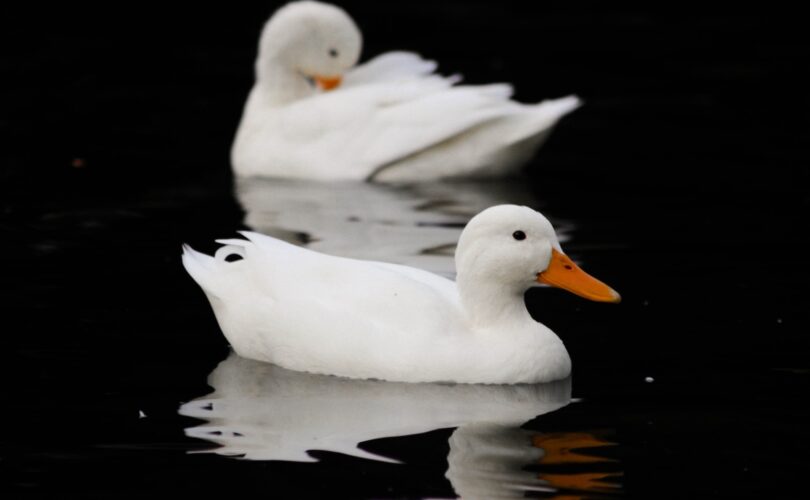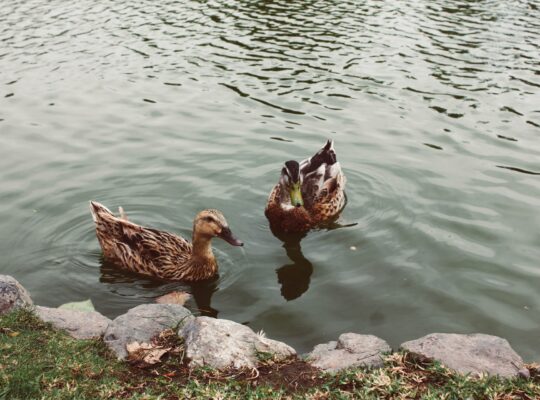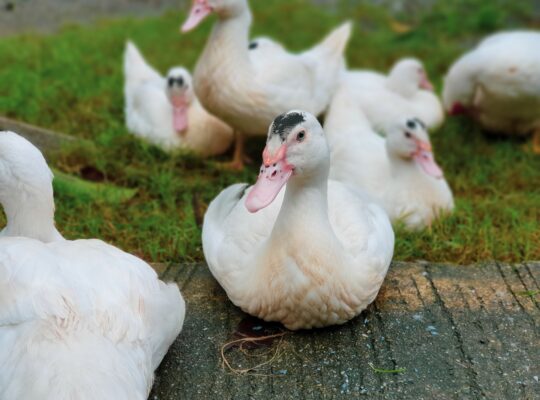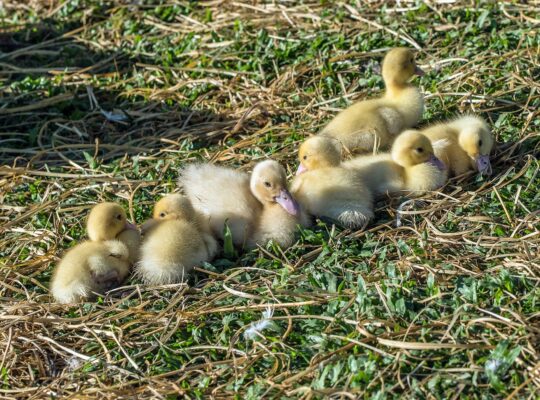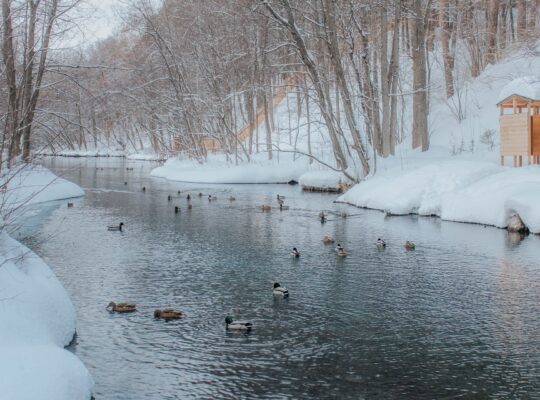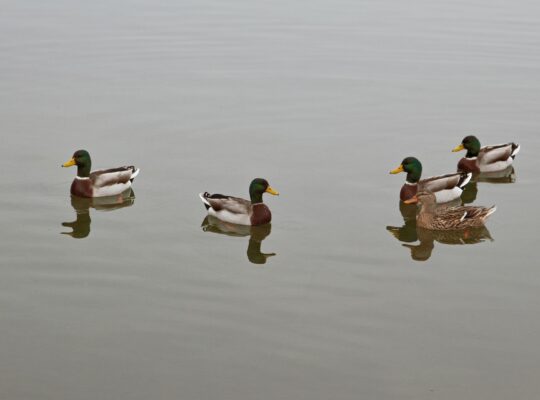Pekin ducks are a famous farmed duck breed recognized for their enormous size and white plumage. They are frequently bred for eggs and meat. Although the Pekin duck is a prolific egg layer, its laying habits might vary based on age, nutrition, habitat, and health. Pekin ducks begin producing eggs at around five to six months of age and may continue to lay for many years. Nevertheless, Pekin ducks will eventually cease producing eggs, and various variables may impact this.
Pekin ducks produce eggs more often when young, producing one egg per day during the peak laying season, usually in the spring and early summer. This time of year usually happens in the spring and early summer. As they get older, the number of eggs they lay decreases, and the size of those eggs may also decrease.
Diet, environment, and genetics may impact how long Pekin ducks will continue producing eggs. Ducks, for example, that are housed in a stress-free environment, fed balanced and nutritious food, and given enough lighting conditions (12-14 hours of light each day) may produce eggs for longer. On the other hand, ducks exposed to harsh temperatures and predators or not fed high-quality food may cease producing eggs at a younger age.
If a Pekin duck stops producing eggs, it is quite rare that it will begin doing so again, but there may be occasional exceptions to this rule. At this stage, most people who own ducks will either retain them as pets or decide to have them processed for their flesh.
Pekin ducks normally cease producing eggs between the ages of two and three years of age; however, the exact timing of this behavior may be affected by a variety of variables. If owners provide their ducks with the right care and keep them in a clean environment, the ducks’ ability to produce eggs for a longer period of time may be possible. However, it is essential to remember that ducks are all unique people and that their capacities for producing eggs might differ from one another.
Do Pekin Ducks Lay Eggs All Year Round?
Pekin ducks are often bred for their flesh and eggs due to their well-known capacity for producing high-quality eggs. Pekin ducks are also commonly consumed as a delicacy in China. Like many other types of poultry birds, Pekin ducks do not produce eggs continuously throughout the year.
The laying season for Pekin ducks normally begins in the spring, around February or March, and lasts until late summer or early autumn, around September or October. At this time, the ducks will lay eggs more often, with peak production coming in the first few months of the laying season.
Pekin duck egg production may progressively decline after the peak laying season, and they may cease producing eggs entirely during winter. This is because ducks need a particular amount of sunshine to stimulate their egg-laying hormones, and the shorter days of winter might interrupt their reproductive cycle.
It is critical to provide appropriate illumination for Pekin ducks during the laying season to guarantee they continue depositing eggs. This may be accomplished by supplementing natural sunshine with artificial lighting, resulting in a minimum of 12-14 hours of light daily. This will assist in keeping the ducks’ reproductive cycle going and guarantee they keep laying eggs.
Individual ducks’ egg-laying patterns may also vary. Some ducks may continue to produce eggs throughout the winter, while others may cease laying sooner or later than planned.
In short, pekin ducks do not produce eggs all year. Their laying season begins in the spring and lasts until late summer or early autumn. Sufficient illumination may keep the ducks producing eggs throughout the laying season. Individual ducks’ egg-laying habits may vary, and their laying may be impacted by heredity, food, and environment.
Do Pekin Ducks Stop Laying Eggs?
Pekin ducks will, without a doubt, stop laying eggs at some time. The age at which they stop laying varies, although it is normally between two and three years old. Pekin ducks lay eggs more often while young, usually one egg per day during the peak laying season. As they age, their egg output will gradually decrease, and the size of the eggs may also decrease.
Diet, environment, and heredity may impact how long Pekin ducks continue producing eggs. Ducks housed in a stress-free environment fed balanced and nutritious food, and given suitable lighting conditions, for example, may produce eggs for longer.
Once a Pekin duck stops producing eggs, it isn’t certain that it will resume. However, there may be occasional outliers. Many duck owners will either retain their ducks as pets or prepare them for meat. As a result, owners must be aware of their ducks’ egg-laying capacities and prepare appropriately.
Do Pekin Lay Eggs In The Winter?
Pekin ducks normally lay eggs throughout the spring and summer, with the first few months of the laying season being the busiest. During the winter, Pekin ducks may cease producing eggs or have a major decline in egg production. This is because ducks need a specific amount of sunshine to stimulate their egg-laying hormones, and the shorter days of winter might interfere with their reproductive cycle.
It is critical to provide appropriate illumination for Pekin ducks throughout winter to continue laying eggs. This may be accomplished by supplementing natural sunshine with artificial lighting, resulting in a minimum of 12-14 hours of light daily. This will assist in keeping the ducks’ reproductive cycle going and guarantee they keep laying eggs.
Despite appropriate illumination, some Pekin ducks may not produce eggs during the winter months. This may be attributed to various variables, including age, genetics, food, and environment. As a result, owners must be aware of their ducks’ egg-laying routines and alter their care appropriately over the winter months.
Pekin ducks begin producing eggs at six months and continue to lay for two to three years. Nevertheless, the egg-laying frequency might vary based on nutrition, illumination, and temperature. While Pekin ducks produce eggs all year, their egg production may decline during winter due to reduced daylight hours and lower temperatures.
Moreover, Pekin ducks may cease producing eggs entirely during their molting cycle, which happens once a year. Pekin ducks are generally prolific egg layers, although various variables may impact their egg production.

